Peanut butter has likely been a staple food for you since childhood, back when your parents would make you a peanut butter and jelly sandwich and tuck it lovingly into your school lunchbox. With peanut butter’s creamy texture and rich, hearty flavor, it’s no wonder why many kids enjoy eating it — and why so many of us continue to love it well into adulthood.
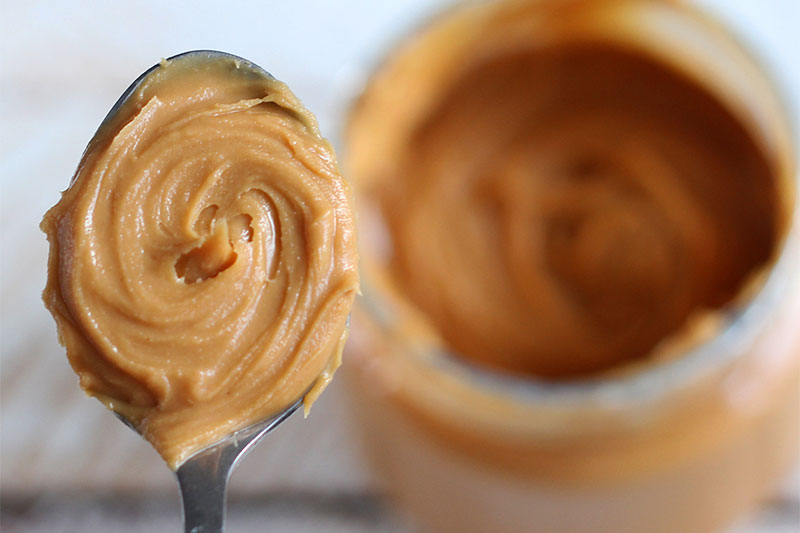
Peanut butter isn’t just for sandwiches, of course. You can use it as a protein-packed spread for celery or drop a couple tablespoons of it into your morning smoothie. And you don’t need us to tell you that you’ll also find peanut butter mixed into candy bars and baked into cookies and brownies. Peanut butter truly is a versatile food, which is great considering it’s relatively inexpensive and widely available.
If you’re a fan of peanut butter, have you ever wondered what happens to your body when you eat it every day? As it turns out, there are advantages — and disadvantages — of being a daily peanut butter consumer. Read on to find out more.
You lower your death risk.
According to a 2015 Vanderbilt University study, eating nuts every day is linked to a lower total death risk. What gives nuts the ability to deter the reaper? Their density of health-promoting and protective nutrients. “Nuts have a healthy fat profile—including mono- and polyunsaturated fats—are rich in antioxidants, contain nutrients like potassium that help maintain a healthy blood pressure, are rich in fiber, and contain heart-healthy plant phytosterols,” says McDaniel. Monounsaturated and polyunsaturated fatty acids have been shown to decrease LDL cholesterol and triglyceride levels, lowering the risk of metabolic syndrome, heart disease, and type 2 diabetes.
You may reduce your heart disease risk.
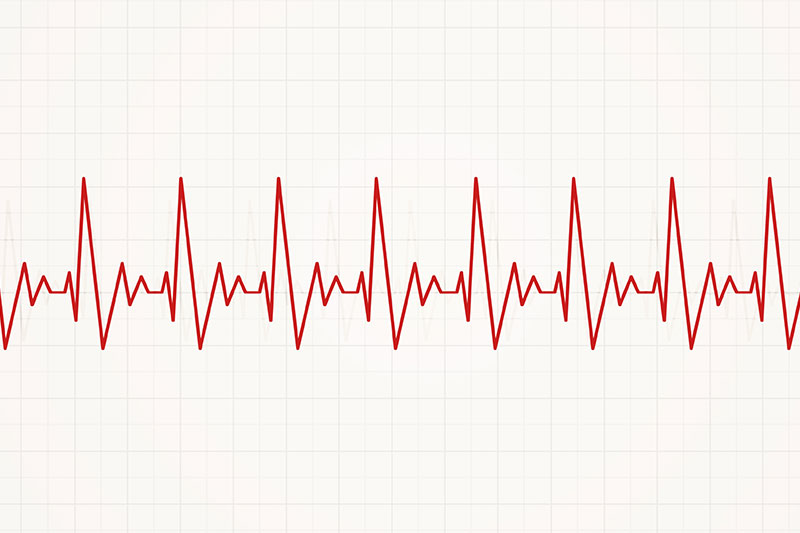
Because peanuts are chock-full of heart-healthy monounsaturated fat, they’re good for your heart as much as your waistline. A 2015 study in JAMA Internal Medicine found that consuming as little as 30 grams of peanuts or peanut butter every week can help decrease the risk of total mortality and death from cardiovascular disease.
You’ll sleep better.

No need to count sheep! A two-tablespoon serving of peanut butter contains 74 milligrams of the amino acid tryptophan, which is the precursor to the sleep hormones serotonin and melatonin, making it the ideal nighttime snack to catch some zzzs.
You’ll aid bone health.

Vitamin K is another fat-soluble vitamin peanuts’ healthy fats will help your body absorb. Vitamin K is essential for normal blood clotting and aids in the transport of calcium throughout the body, which is helpful for bone health.
You’ll combat toxins.
Peanuts’ mono- and polyunsaturated fats help fat-soluble vitamins like vitamin E be absorbed by the body. Vitamin E protects against toxins such as air pollution and soothes premenstrual syndrome. It also combats eye disorders such as cataracts and neurological diseases such as Alzheimer’s disease and diabetes.
You’ll lower blood pressure.

Potassium is not only essential for muscle contraction, but it also plays a key role in lowering blood pressure, according to the American Heart Association. In fact, potassium deficiencies are linked to cardiovascular disease, renal disease, osteoporosis, and type 2 diabetes. To ensure peanut butter is a good food to reduce blood pressure, make sure you opt for an unsalted version.
You’ll reduce diabetes risk.
Eating peanut butter may help reduce the risk of developing diabetes. Miriam Jacobson RD, CDN of foodcoachnyc.com cites a study published in the Journal of the American Medical Association, which found that consuming one ounce of nuts or a half-serving of peanut butter (about one tablespoon) at least five days a week can lower the risk of developing diabetes by over 20 percent.
Peanut butter may help you lose weight.
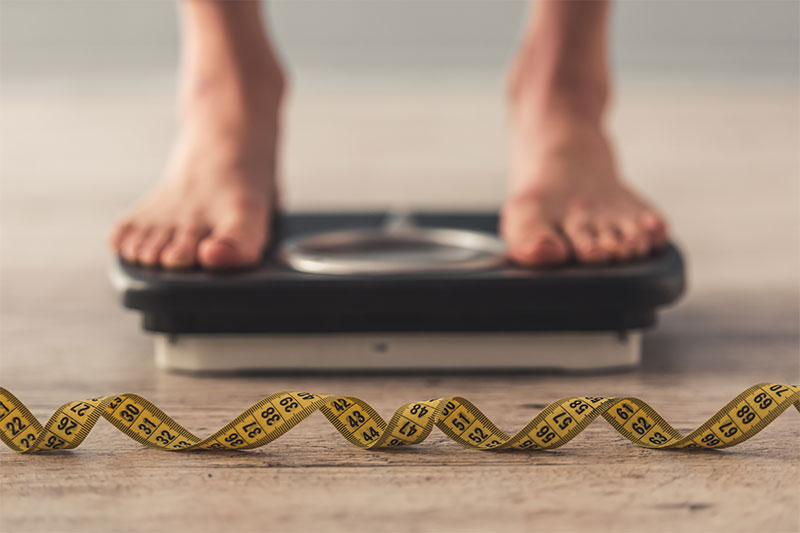
Even when you’re on a calorie-restricted diet, studies have shown that including legumes can help with weight loss. Why? For starters, peanuts contain a good amount of protein—7 grams in 2 tablespoons. Add that to the high healthy fat and fiber content, and you’ve got a tasty snack that will keep you fuller longer. The result may be less caloric intake later in the day. “Most people find eating 200 calories of peanut butter is more satiating than, say, 200 calories of pretzels,” says Jennifer McDaniel, MS, RDN, CSSD, LD. According to a study in the International Journal of Obesity, peanuts can even increase your metabolic furnace. In that study, subjects’ metabolic rate jumped by 11% when they ate about 500 calories of peanuts daily for 19 weeks.
You could gain weight.
“Many of the health benefits of peanut butter can be negated if they’re only consumed with white bread or crackers and jelly or chocolate,” says McDaniel. She adds that certain processed peanut butters contain unhealthy additives and too much salt. “Reduced-fat peanut butters often up the sugar,” says McDaniel. “And avoid peanut butters that have artery-clogging hydrogenated oils in the ingredient list.”
Schapiro often recommends nut butters for clients who are trying to gain weight because they’re so calorically dense. “Just one tablespoon has about 100 calories, and if you’re digging into a jar, it’s not likely you’ll stop at just a spoonful,” she says. “Most peanut butters also contain added sugar for flavor. Combining sugar and fat creates a hormone symphony for fat storage.”
You may be exposed to pesticides.
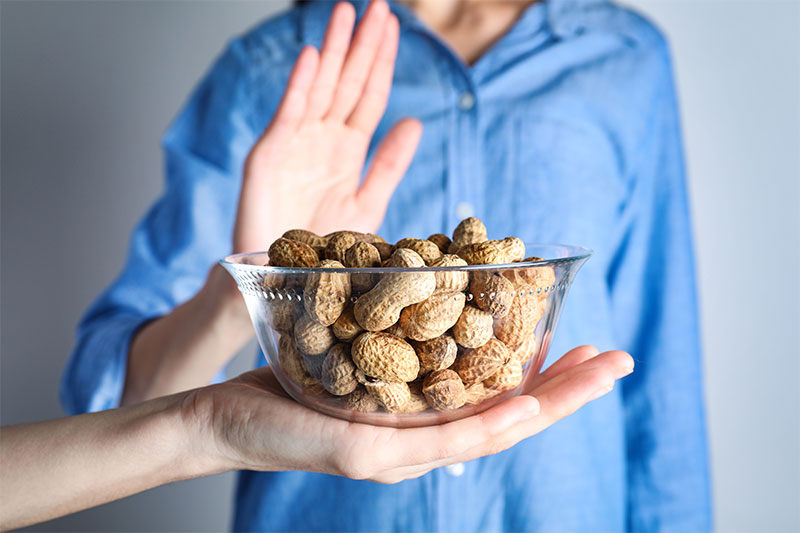
Some farmers can go heavy on the pesticides and herbicide use is rampant in peanut production. According to the USDA, 94 percent of planted acres of peanuts are covered in herbicides. The problem is that peanuts have a very light shell, so the chemicals can easily leach in. Pesticide exposure has been linked to birth defects and impaired fertility in men. Your best bet? Choose an organic variety.
Fats in peanut butter may improve brain health.

According to McDaniel, studies have found that the monounsaturated fats found in foods like nuts and olive oil are protective of brain health and function. How? Nuts’ antioxidative and anti-inflammatory properties help reduce stress (or oxidative damage) to the brain.
Eat peanut butter to aid in muscles recovery.
Potassium plays a key role in muscle health and recovery, and the good news is that peanut butter has a good amount of this important mineral. With 179 milligrams of potassium in each two-tablespoon serving of the nutty spread, it can also help with relieving muscle soreness and cramping.
You could prevent a peanut allergy.
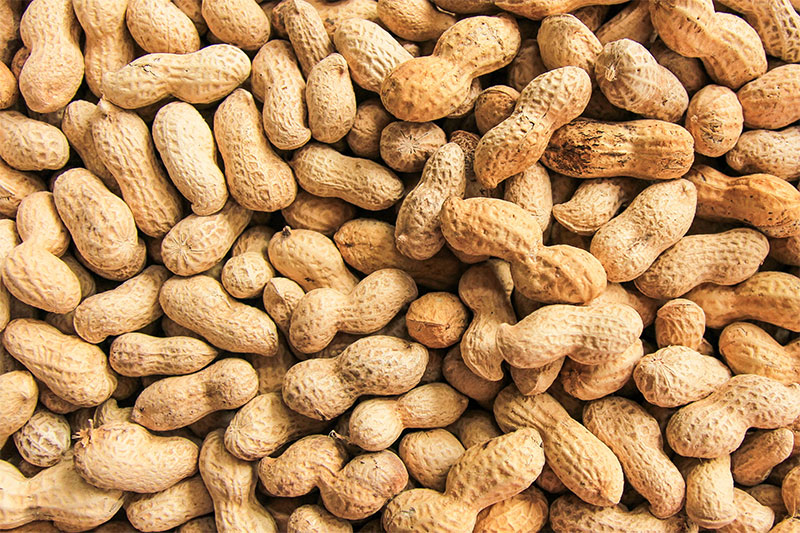
Eating PB during pregnancy may actually help lower the risk of your child having a peanut allergy, according to guidelines by the National Institute of Allergy and Infectious Diseases. “If you yourself don’t have a peanut allergy, a scoop a day might keep a food allergy away!” says McDaniel. A JAMA Pediatrics study found that non-allergic mothers who ate peanuts or tree nuts five times a week or more were less likely to have a baby with a nut allergy. “Mothers don’t need to avoid any of these allergic foods,” adds Frank R. Greer, MD, professor of pediatrics at the University of Wisconsin. “If anything, they might be beneficial.”
You’ll feel fuller.
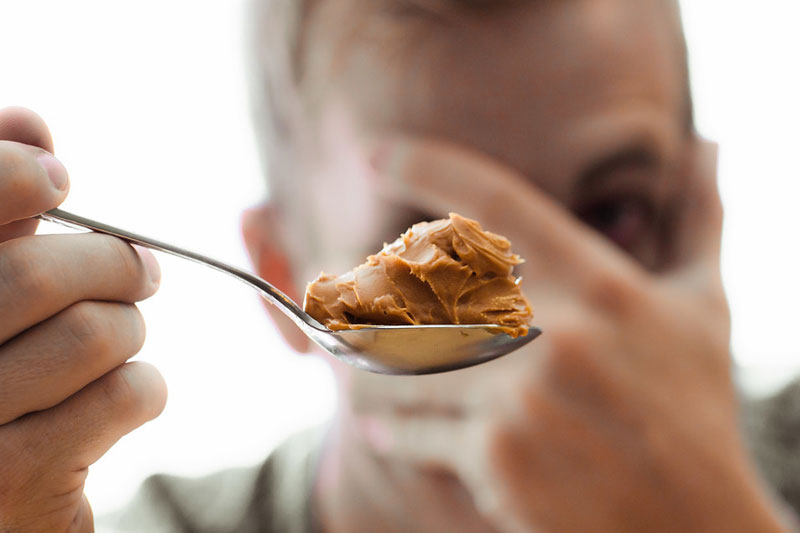
Is peanut butter good for you? Ilyse Schapiro, MS, RD, CDN thinks so. She shares that peanut butter’s monounsaturated fat and protein are highly satiating.
How to eat peanut butter for weight loss:
- Have peanut butter on toast for breakfast with bananas and chia seeds
- Add peanut butter to a sandwich for lunch with crushed whole raspberries
- Pair peanut butter with an apple for a snack that can prevent you from overeating
“But always consume it in moderation,” Schapiro adds. A good serving size is two tablespoons. You can also creatively work peanut butter into your meals.
You’ll be happier.
Ever wonder you instantly feel better after eating a tablespoon of peanut butter? It’s not just because it tastes good; it’s because it also helps boost the production of serotonin, a neurotransmitter that helps improve mood and provides calming effects.
There is an extremely small chance you could consume mold.
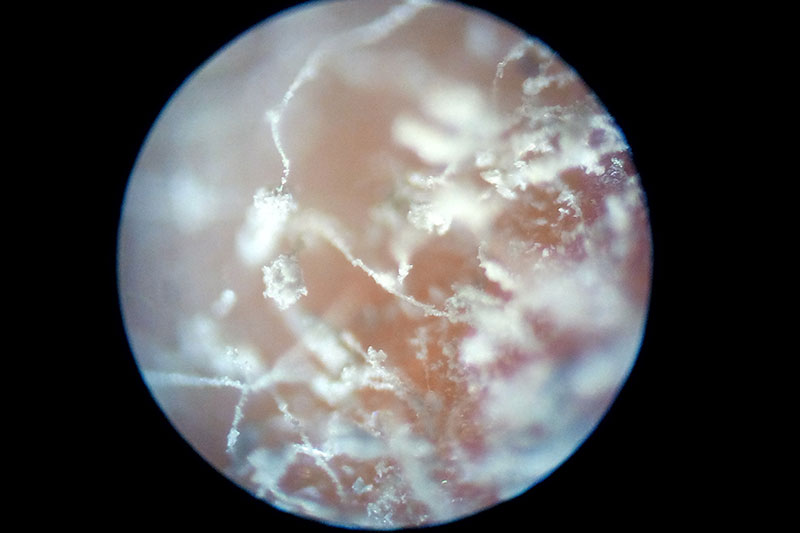
Jacobs typically doesn’t recommend peanut products because of their susceptibility to invasions by fungi and mold. Aflatoxin, a fungus common to peanut products, can cause developmental delays in children, and over time it can lead to a higher risk of liver cancer, according to the NIH.
However, there might not be much to worry about. Light roasting helps to protect peanuts against aflatoxin. To date, the NIH reports that there’s never been an outbreak of human illness caused by aflatoxins in the United States, but outbreaks have occurred in some developing countries. NIH experts recommend staying vigilant by buying only major commercial brands of peanuts and peanut butters, and by “discarding nuts that look moldy, discolored, or shriveled.” You can also choose different nut butters such as almond or cashew.


